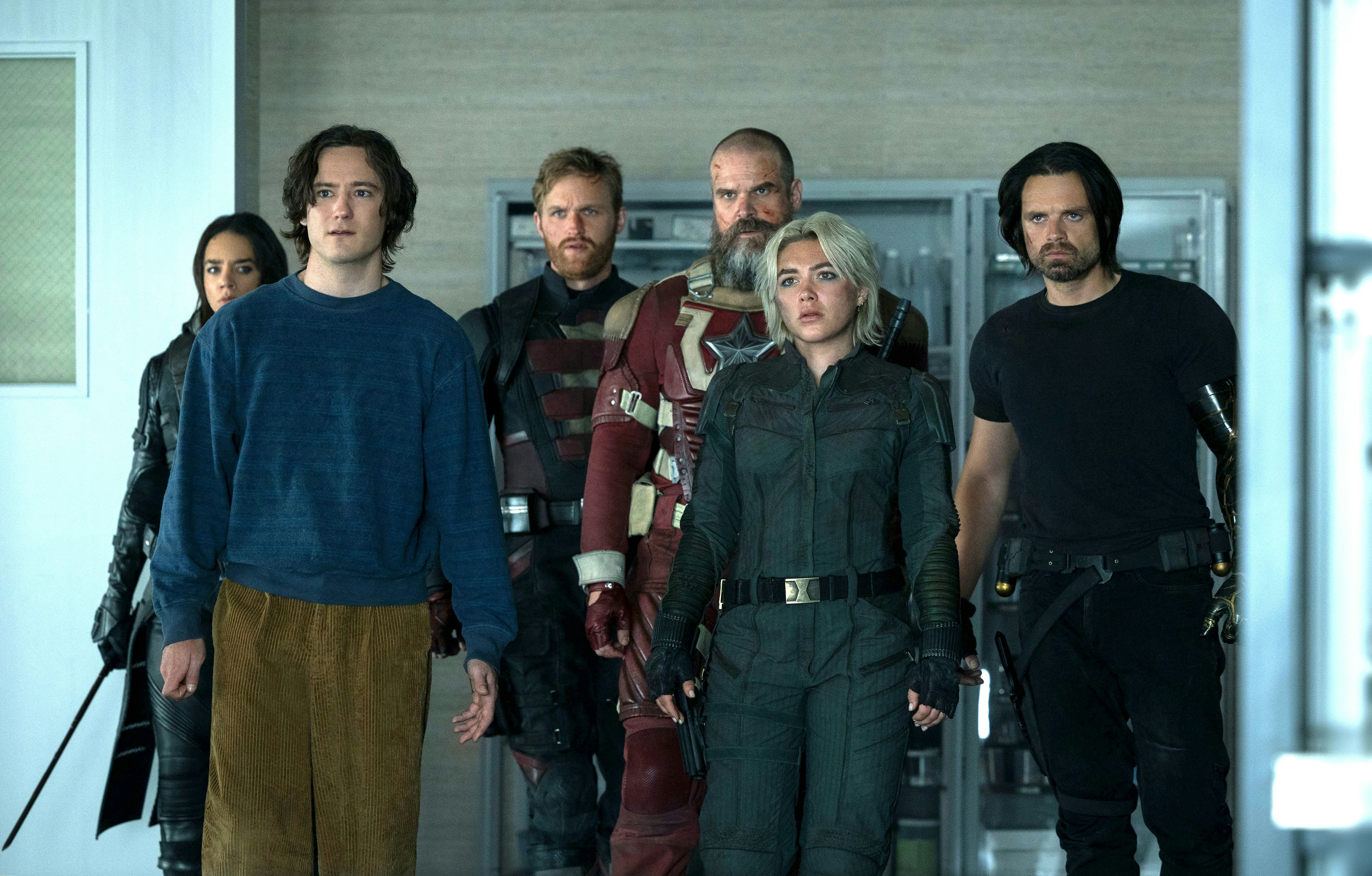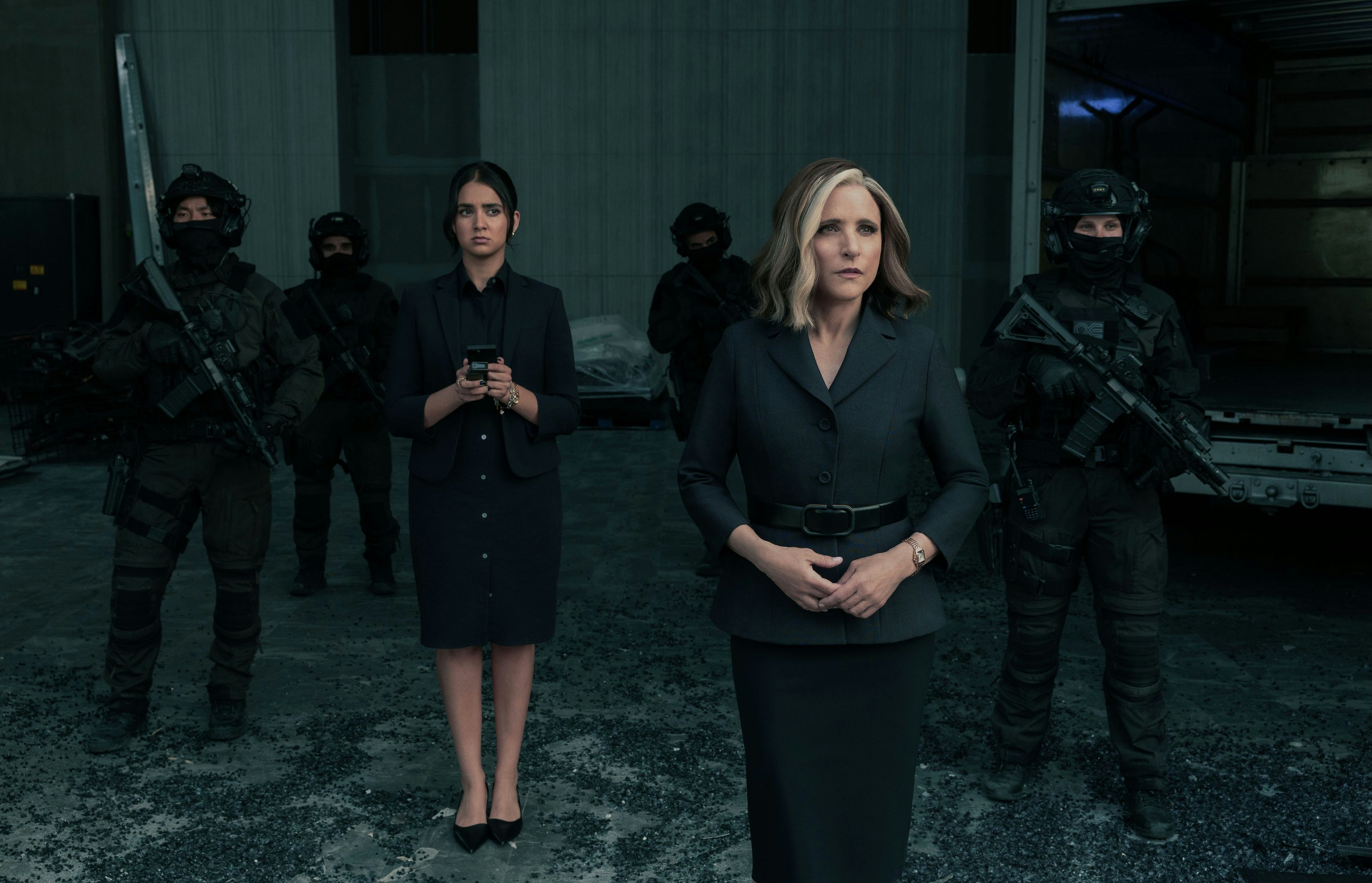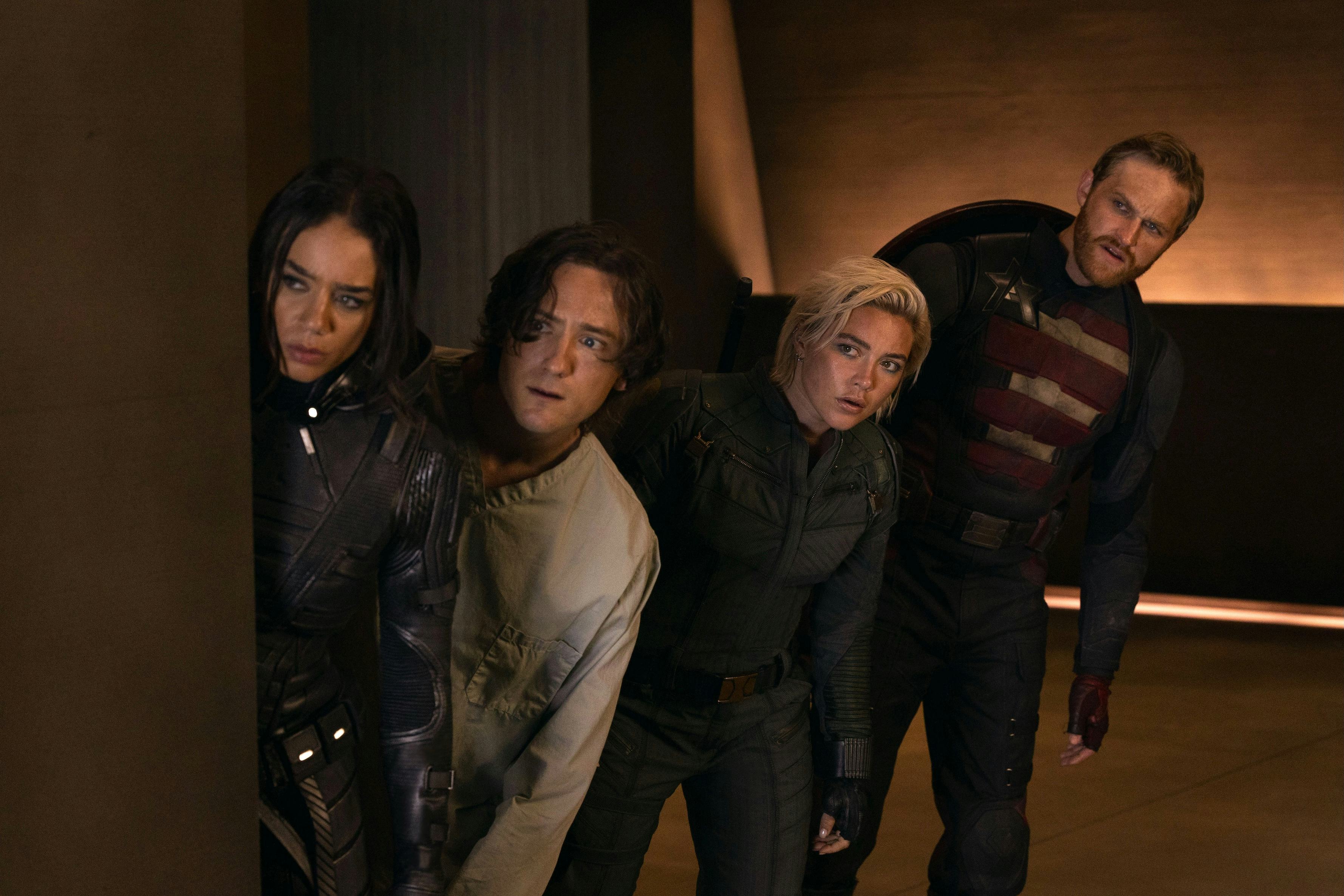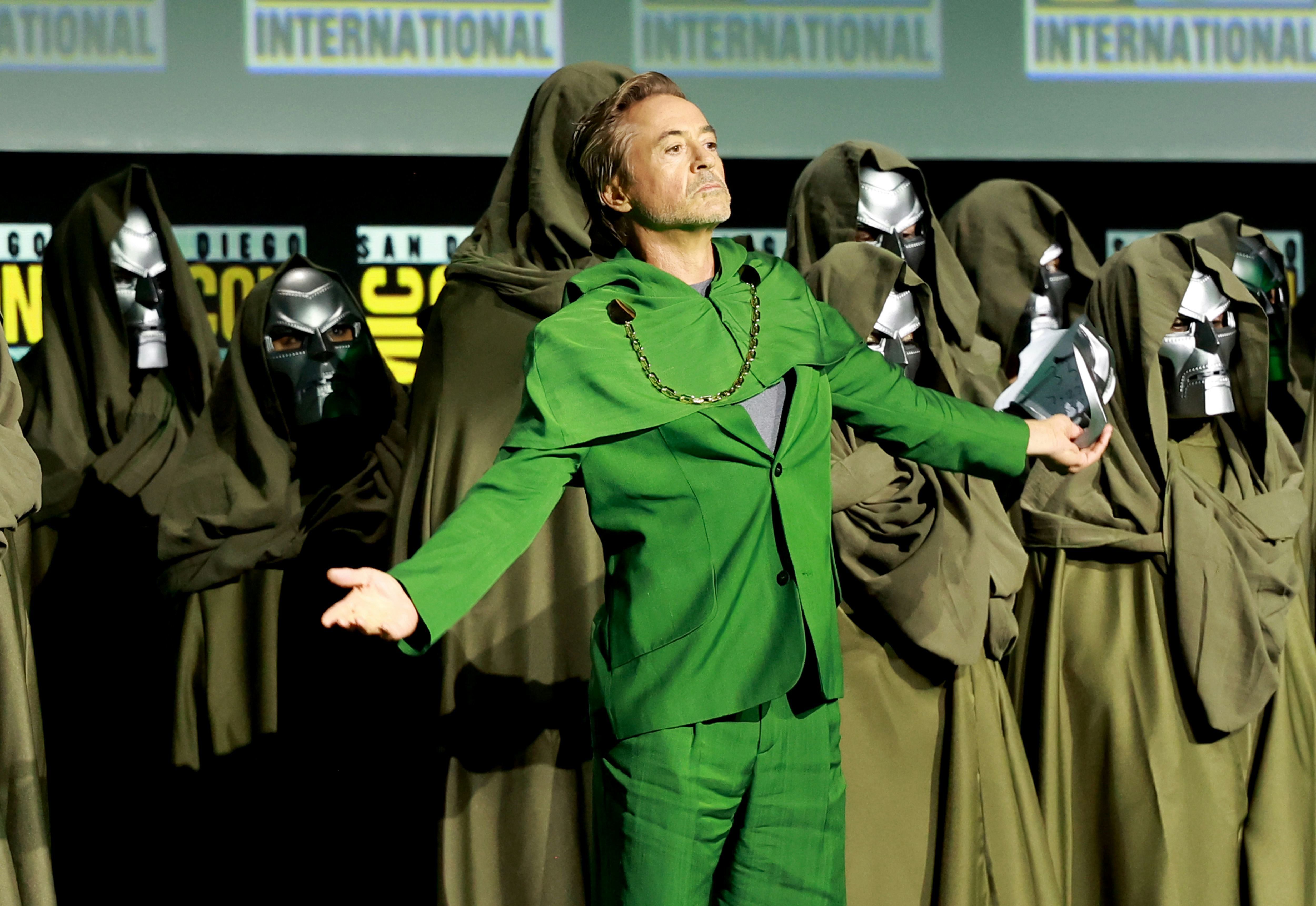
The secret meaning of the title of Thunderbolts* has been revealed. At the very end of the latest MCU epic, this team of unlikely superheroes drops their ad-hoc group name and is given another, very familiar moniker. Some of the internet predicted the result of this exact twist, but how it all came about was a huge surprise.
But what does this new label mean? Here’s what happens at the end of Thunderbolts*, how it messes with comic book lore, and why it may not mean what we think it means for the future of Marvel.
Major spoilers for Thunderbolts* ahead.
Thunderbolts* Ending, Explained

In the final moments of Thunderbolts*, the assembled crew, including Yelena (Florence Pugh), John Walker (Wyatt Russell), Bucky (Sebastian Stan), Red Guardian (David Harbour), and Ghost (Hannah John-Kamen) are fully prepared to destroy and/or arrest Valentina Allegra de Fontaine (Julia Louis-Dreyfus) for her role in creating Sentry (Lewis Pullman) and trying to have each of them murdered at the beginning of the movie.
But, in a clever pivot, Valentina uses her authority as the head of the CIA to give credit to the team for saving the city, and doing so, dubs them “The New Avengers.” This was not Valentina’s plan at first. She was hoping that Sentry would be fully under her control, but when that failed, she decided to take credit for the Thunderbolts getting Bob under control and then trapping them in a new role. But Yelena whispers to Valentina, “We own you,” meaning that although the team was manipulated into their new roles as the CIA-sponsored Avengers, they won’t cede control to Valentina at all.
So, what does this mean going forward? Are the New Avengers the real-deal Avengers?
The New Avengers Changes Comics Canon

Generally speaking, the MCU only loosely adapts various arcs from specific Marvel Comics storylines. For example, the 2016 film Civil War is based on the 2006-2007 comic story penned by Mark Millar. But there are many, many differences, not only in tone, but in basic motivation of the characters. The same is true of the Thunderbolts becoming the New Avengers.
The concept of a superhero team called Thunderbolts actually comes from a series of 2009 comics that eventually became known as The Dark Avengers, primarily created by writer Brian Michael Bendis. In that continuity, some members of Thunderbolts (like Sentry) worked on a superhero team that was largely made up of government-controlled villains acting in Avengers-like roles. For example, in some versions of the Dark Avengers, Venom participated in a Spider-Man-esque position. U.S. Agent (John Walker) also was part of the Dark Avengers in the comics in 2013.
But in the movie, the team is called “The New Avengers” and none of its roster really represents the team from the The New Avengers comics. Members in The New Avengers (also created by Brian Michael Bendis) have included Spider-Man, The Thing, Wolverine, Luke Cage, and Carol Danvers. Obviously, none of those characters are part of the new MCU version of The New Avengers. Tonally, our “new” New Avengers are coded as good people, but their predicament, as state-sponsored heroes, echoes The Dark Avengers.
So, what does it all mean for the future?
Will Doomsday Be a New Civil War?

As teased by the post-credits scene, it appears that the future of the MCU will reveal a lack of clear consensus as to who the “real” Avengers are. We’ve been here before, of course. Back in 2015, Captain America formed a rogue group of Avengers to challenge Tony Stark’s Avengers, who, more or less, were working for the government. Since then, there hasn’t been a clear idea of who represents the true Avengers, which was even true in Infinity War and Endgame, in which the original members only reunited out of dire necessity.
So with two more Avengers movies coming in 2026 and 2027, it seems that The New Avengers at the end of Thunderbolts* represents a transitional phase rather than a permanent thing. We’re meant to think this is a controversial decision, both in our universe and within the MCU itself. And whether that leads to a full-on hero-on-hero battle remains to be seen. Either way, Marvel has a new group of Avengers, and if we’re being honest, they’re more realistic than any superhero team the MCU has dreamed up in quite a long time.







